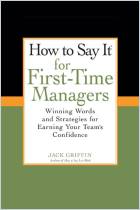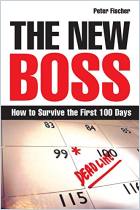
Read or listen offline
Amazon KindleRecommendation
Most of us developed our management skills, or lack thereof, in the same way: through trial and error. But Morey Stettner’s new book will give anyone freshly promoted to the ranks of management a valuable head start by spelling out practical steps that new managers can take to be effective. For all of you old-timers, reading this book will induce a near constant mental stream of "I wish someone had told me that when I was starting out." For example, Stettner’s first step, writing out a basic plan of how you want to manage your subordinates, might at first seem a bit naive to veterans. But consider this point: How much time did you spend thinking about the techniques you would use in managing people before taking over your first managerial assignment? The probable answer is not much. In a clear voice laced with illustrative examples, Stettner covers the critical skills managers rely on every day: speaking, listening, criticizing and disciplining. For his insightful treatment of these topics, getAbstract recommends this book to managers new and old, employees and students of management - But then again, aren’t we all?
Summary
About the Author
Morey Stettner is a writer and communication-skills consultant in Portsmouth, NH. He is the author of The Art of Winning Conversation and editor of Working Smart and Executive Strategies, two monthly newsletters published by the National Institute of Business Management in McLean, VA. He also writes weekly front-page articles on effective management for Investor’s Business Daily.


















Comment on this summary or Diskussion beginnen